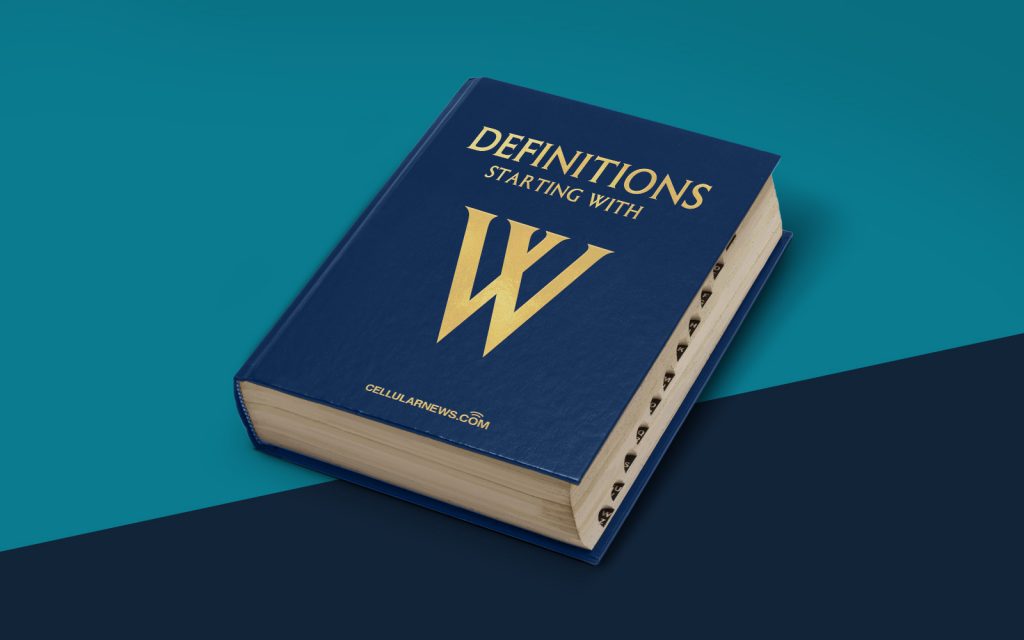
The Definitive Guide: What is Windows Communication Foundation (WCF)?
Greetings, tech enthusiasts and curious minds! Today, we dive into the exciting world of software development and explore the realm of Windows Communication Foundation (WCF). If you’re wondering what this powerful technology is all about, you’ve come to the right place. In this comprehensive blog post, we’ll demystify WCF and shed light on its key features, benefits, and real-world applications.
Key Takeaways:
- Windows Communication Foundation (WCF) is a comprehensive framework for building service-oriented applications.
- It enables developers to create secure, reliable, and interoperable communication between software components and systems.
Understanding Windows Communication Foundation (WCF)
Windows Communication Foundation, commonly referred to as WCF, is a robust and flexible framework for developing service-oriented applications in the Microsoft Windows ecosystem. It provides a unified programming model that allows developers to build distributed systems with ease, enabling seamless communication between various software components.
At its core, WCF simplifies the process of creating, configuring, and consuming services by abstracting complex communication protocols and details. It allows developers to focus on implementing business logic and functionality, while WCF takes care of the underlying communication aspects.
Here are some key features and benefits of Windows Communication Foundation:
- Interoperability: WCF enables communication between services written in different programming languages or running on different platforms. It leverages standard protocols such as HTTP, TCP, and SOAP, making it compatible with a wide range of systems.
- Security: WCF provides robust security mechanisms to protect communication across networks. It supports various authentication, authorization, and encryption techniques, ensuring that data remains secure throughout the communication process.
- Reliability: By offering reliable messaging, WCF ensures that messages are delivered in order and without loss, even in the face of network failures or errors. It employs reliable session management and transactional message processing to guarantee reliable communication.
- Extensibility: With its extensible architecture, WCF allows developers to customize and extend functionality according to their specific requirements. It supports various transport protocols, message encodings, and interoperability standards, granting flexibility in system design.
- Service-oriented Architecture (SOA): WCF promotes the building of applications using a service-oriented architecture, where functionality is exposed as a service and can be consumed by other applications and systems. This modular approach facilitates scalability, reusability, and easier maintenance of software systems.
Real-world Applications of Windows Communication Foundation
Windows Communication Foundation has found widespread adoption in a multitude of industries and domains. Here are some real-world applications where WCF shines:
- Enterprise Software: WCF provides a robust framework for building scalable and secure enterprise applications that involve complex communication between different systems and services.
- Financial Services: WCF is commonly used in the financial industry to develop applications that require secure and reliable communication between trading platforms, banking systems, and other financial services.
- Healthcare Systems: WCF plays a vital role in developing healthcare systems that require interoperability between various medical devices, electronic health records, and hospital management systems.
- E-commerce Platforms: With WCF, developers can create e-commerce platforms capable of handling high volumes of transactions and enabling seamless communication between online stores, payment gateways, and inventory management systems.
In conclusion, Windows Communication Foundation (WCF) is a powerful framework that simplifies the development of service-oriented applications. With its extensive features and benefits, WCF empowers developers to build secure, reliable, and interoperable systems, making it an essential tool in today’s technology landscape.
Stay tuned to our blog for more informative articles on software development, emerging technologies, and everything in between. Happy coding!
